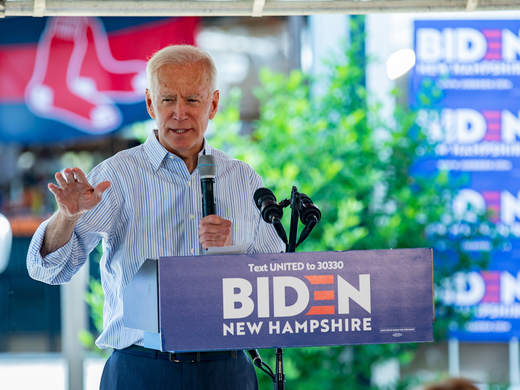Nayib Bukele, the president and facetiously self-proclaimed “dictator” of El Salvador, boasts a nearly 93 percent approval rating, despite — or perhaps due to — extreme crackdowns on his people. His government silences journalists, prohibits gatherings of groups larger than two, and continues to arrest many people without cause. He has promoted these policies as efforts to curb gang violence, but the measures are rife with human rights violations.
How has he managed such ratings despite such inhumane measures?
In large part, by controlling the story. Journalists are banned from reporting on El Salvador’s gang problem, and press outlets have been driven from the country due to overwhelming threats and surveillance. Bukele is an avid TikTok user and employs it to broadcast his cultivated version of events in the country. And he’s not alone in his use of digital media as a core tool for control: social media platforms are integral to the success of authoritarian leaders in the twenty-first century.
“Spin dictators” such as Bukele (leaders who rely on manipulating information to manufacture both popularity and control) are on the rise worldwide. Indian Prime Minister Narendra Modi has heavily relied on social media and boasts an approval rating of 77 percent. Beyond the recognition he’s achieved through successful infrastructural investments, Modi’s also known for his polarizing policies — especially those favouring the Hindu majority of the country. Türkiye’s president, Recep Tayyip Erdogan, relies on harsh “disinformation” penalties to support his power, and in the past has also relied on social media to avoid a coup. And social media was heavily employed by Ferdinand “Bongbong” Marcos Jr., president of the Philippines, in the massive disinformation campaign that propelled him to office. Newly re-elected Erdogan remains popular, and Marcos Jr. boasts quite high approval ratings.
Because EMAs are beneficial not only for control but also for democractic engagement, suggestions to break encryption in order to solve this informational problem risk harming those fighting for human rights.
Democratic Backsliding and Social Media
At the Propaganda Research Lab at the Center for Media Engagement at The University of Texas at Austin, we study how emerging media technologies are used in bids to both control public opinion and support democracy. In our recent investigations into the people who produce digital manipulation campaigns on behalf of countries around the world (in Egypt, Ethiopia, India, Indonesia, Libya, Mexico, Morocco, Myanmar, the Philippines, Türkiye and Ukraine), we found rampant state-sponsored trolling, disinformation and political propaganda. This occurred not only on more open social media platforms, such as Facebook and YouTube, but over more private messaging apps such as WhatsApp, Signal and Telegram.
While these encrypted messaging applications, or EMAs, are appropriately touted as secure spaces in which to communicate free from government surveillance, they are also, and increasingly, used by oppressive governments and other groups to attain and retain power.
EMAs are particularly beneficial for state propagandists in that they allow them to capitalize on the lack of external oversight of harmful, illegal content. Corporate moderators, fact-checkers and academic researchers are mostly unable — by design — to access many channels. But the encryption is also a key benefit for democratic activists under authoritarian regimes, preventing surveillance and allowing for secure communication and organization.
One self-described information technology “yoddha” (warrior or combatant in Sanskrit) working for the Bharatiya Janata Party (BJP) in India told us that the BJP controls millions of WhatsApp groups for the purpose of supporting the party, and that Modi’s party has actually benefited from WhatsApp restrictions on message forwarding and group size. Prior to the restrictions, the BJP used unlimited message forwarding in tandem with automation to scale its groups. Lacking the same mechanisms for amplification, no other party can compete with the EMA propaganda machine they’ve created. Without the corporate content moderation that exists on open social media platforms such as Facebook and X (formerly known as Twitter), they are able to pump out massive quantities of propaganda, unimpeded.
Because EMAs are beneficial not only for control but also for democractic engagement, suggestions to break encryption in order to solve this informational problem risk harming, rather than helping, those fighting for human rights. We do not advocate for this path. Measures such as client-side scanning — that is, scanning the sender’s post before it is encrypted for transmission — could also lead to repressive censorship. But content moderation and encryption are not diametrically opposed. Instead, community-centred approaches such as bottom-up media literacy programs and user reporting could mitigate propaganda while protecting users’ security.
Activists resisting authoritarian states sometimes struggle to put their faith in EMAs due to the ubiquitous surveillance they experience under these “informational autocracies” (states that rely on censorship and propaganda to maintain control). Notably, some leaders examined in our case studies also deploy other methods of control, for example, electoral manipulation, kidnapping or surveillance. While democracy activists rightly point out that if their phones were seized, end-to-end encryption would not be protective, they’ve also noted to us that they simply do not trust any social media or messaging tools, including encrypted ones, because of a widespread culture of fear.
Overall, EMAs can encourage the spread of informational autocracies and support the power of spin dictators. The use of EMAs for propaganda is increasing around the globe — as other work on the situations in Brazil and Spain has also shown. At the same time, they remain necessary for democratic resistance — particularly if trust can be increased among democratic activists. Yet encryption will not necessarily protect against spyware such as Pegasus, or phones being seized and searched.
The implications for democracy are dire: when propaganda invades our most trusted and private conversations, we may be likely to believe it. As authoritarianism continues to spread around the globe, “spin dictators” and their agents’ use of emerging technologies such as EMAs to manipulate elections and retain control is concerning. Ensuring that the stories and framing around political actions are not hijacked by bad actors is crucial — especially in times of mass reach within a few clicks.



